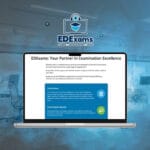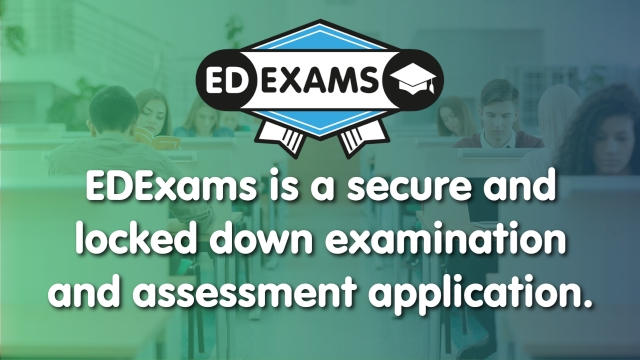As exam season is fast approaching and students are preparing themselves, it’s also important that staff make the necessary preparations so they can invigilate properly. We’ve rounded up 5 of the best tips to make sure everything runs smoothly.
1. Make sure you have the proper training
Before going into any exam, it’s important to familiarise yourself with what’s expected of you as an invigilator. The JCQ’s guidelines are full of all the rules and regulations that exam invigilators need to follow, so it’s always worth having a read to make sure you know exactly what to do for any scenario that might arise.
2. Giving off the right presence
One of the most important aspects of invigilating is making sure that the environment the exam is taking place in is calm with no distractions. Examinations can be a very stressful time for a lot of students, so providing a calm presence can go a long way in minimising those anxieties. If any problems occur, it’s always crucial to approach them with a good level of composure in order to stop a scene from happening.
Giving off the right presence also means making sure that you aren’t a distraction. At no point do you want to be throwing off a student from their train of thought, and even the slightest bit of interference can affect a student. We’d recommend wearing soft soled shoes and trying not to wear any noisy jewellery or strong perfumes/aftershave.
3. Plan for problems
As the old saying goes: Fail to prepare, prepare to fail. As an invigilator, you must be aware of any and all problems that can occur during and even before an exam starts and prepare for them accordingly. For example, before an exam starts you have to make sure that students have brought the correct equipment with them. If they don’t it’s up to you to provide them with whatever they are missing e.g. a pen or pencil.
Something else to keep in mind is to make sure you’re at the venue where the exam is taking place a good while before it begins to ensure that everything is set up properly and that there is enough spare equipment to go around.
As previously mentioned, exams can be very stressful for students, which can lead to potential problems. For example, students who suffer from anxiety or panic attacks might have an episode during an exam, so it’s imperative that you know how to deal with problems like this. Don’t be afraid to take a student out of the exam room and let them get some air.
Something you can read up on is the Emergency Stop Relaxation Technique, which is a technique that students are encouraged to follow if they feel themselves in a panicked situation at school. If a student appears to be struggling, it’s useful to remind them of this technique.
“The Emergency Stop Relaxation Technique may help you to cope immediately with a stressful situation until you have time for further relaxation.”
4. Stay professional
No matter what happens during an exam’s runtime, it’s very important for your sake and the student’s sake to stay professional in any scenario. You have to set an example for the students and can’t be acting out of line for the duration of the exam or you could risk punishment for malpractice from your Head of Centre.
“JCQ define malpractice as any act, default or practice which is in breach of CCEA and/or regulatory requirements.”
5. Online invigilation
Due to COVID-19, it’s not out of the ordinary for exams that would normally take place in a hall or classroom to be moved online. In this case, it’s good to make sure that you’ve got good IT skills and are aware of the differences between invigilating in person exams vs online exams.
EDExams can help you with invigilating
EDInvigilate is an all in one examination and invigilation service provided by EDExams.
We provide an online invigilator who supervises a test-taker using the webcam and audio built into the test taker’s computer. The proctor confirms the test taker’s identity and can pause or terminate the assessment if they see suspicious behaviour.
All EDExams invigilators have experienced professionals in the exam delivery sector, following JCQ guidelines and processes.
For a free online demonstration of the EDExams system or if you have any further questions please contact mail@edexams.com or call 01909 384 090.











